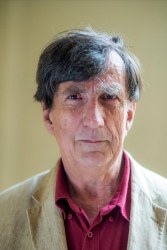Ecsite is deeply saddened to hear of the passing of Bruno Latour, one of France’s and Europe’s most recognisable intellectuals.
Latour spent large parts of his lifetime studying how science claims its authority and how it relates with society, the latter being also the subject matter of contemporary science communication.
Among his most well-known works are Laboratory Life (1979), Science in Action (1987), We Have Never Been Modern (1991) and Politics of Nature (1999). He was also awarded the Holberg Prize (2013) and the Kyoto Prize (2021).
Initially, strongly emphasising the role of the human perspective in the gathering of scientific data, an approach that lead to criticisms of a relativistic position, he has moved to defending the importance of science and he has been campaigning in recent years for meaningful action in addressing climate change, striving to persuade the world that climate change is not just another theory, but an irrefutable phenomenon, properly studied and accurately described by the scientific community.
He also argued vigorously that there is a clear contrast between being critical of aspects of the scientific enterprise and the “grotesque caricature”i of pseudo-critical approaches that are popular among so-called climate change sceptics in our post-truth era.
We express our condolences to Bruno Latour’s family, friends and associates. His sober voice will be greatly remembered.
[i] Kofman, A. (2018, October 25). Bruno Latour, the post-truth philosopher, mounts a defense of science. The New York Times. Retrieved October 10, 2022, from https://www.nytimes.com/2018/10/25/magazine/bruno-latour-post-truth-phil...

